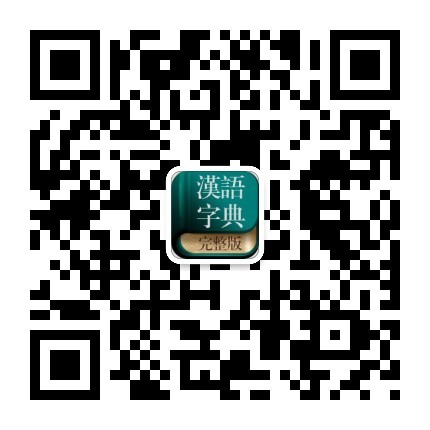☉ 博古通今 【bóɡǔtōnɡjīn】
[ have both ancient and modern knowledge be crudite and informed ] 通晓古今一切知识和事情,形容知识渊博。亦称“博古知今”。
[ have both ancient and modern knowledge be crudite and informed ] 通晓古今一切知识和事情,形容知识渊博。亦称“博古知今”。
☉ 当今 【dānɡjīn】
[ nowadays;at present;now ] 在这些日子里;现在。
例: 当今皇帝盛明。——南朝梁·丘迟《与陈伯之书》
[ nowadays;at present;now ] 在这些日子里;现在。
例: 当今皇帝盛明。——南朝梁·丘迟《与陈伯之书》
☉ 而今 【érjīn】
[ now ] 现在,目前。
例: 而今迈步从头越。——毛泽东《忆秦娥·娄山关》
[ now ] 现在,目前。
例: 而今迈步从头越。——毛泽东《忆秦娥·娄山关》
☉ 方今 【fānɡjīn】
[ now at present ] 现今 而今。
例: 方今之世
例: 方今之时,臣以神遇而不以目视。——《庄子·庖丁解牛》
[ now at present ] 现今 而今。
例: 方今之世
例: 方今之时,臣以神遇而不以目视。——《庄子·庖丁解牛》
☉ 非昔是今 【fēixīshìjīn】
[ consider that past is wrong and present is right ] 认为过去不对,现在对 [在某个方面]认为以前不好,而认为现在好。
[ consider that past is wrong and present is right ] 认为过去不对,现在对 [在某个方面]认为以前不好,而认为现在好。
☉ 抚今追昔 【fǔjīnzhuīxī】
[ evoke memories of the past at the sight of the present ] 面对当前情景而追忆往事。
例: 往往抚今追昔,物是人非,不免怅然而返。——《花月痕》
[ evoke memories of the past at the sight of the present ] 面对当前情景而追忆往事。
例: 往往抚今追昔,物是人非,不免怅然而返。——《花月痕》
☉ 古今 【ɡǔjīn】
[ ancient and modern ] 古代和现代。
例: 古今差异
[ ancient and modern ] 古代和现代。
例: 古今差异
☉ 古今中外 【ɡǔjīnzhōnɡwài】
[ both ancient and modern,Chinese and foreign at all times and in all countries ] 古代、现代、中国和外国 泛指时间久远,空间广阔。
例: 古今中外兼容并包
例: 古今中外,有成就的科学家,为了攀登科学的高峰,虽几经周折,但毫不气馁,终于取得了成功
[ both ancient and modern,Chinese and foreign at all times and in all countries ] 古代、现代、中国和外国 泛指时间久远,空间广阔。
例: 古今中外兼容并包
例: 古今中外,有成就的科学家,为了攀登科学的高峰,虽几经周折,但毫不气馁,终于取得了成功
☉ 古往今来 【ɡǔwǎnɡjīnlái】
[ through the ages of all ages ] 古代逝去,今世到来,也含有将来之意。
例: 自然这块玉到底有些来历。况且你女婿养下来就嘴里含着的。古往今来,你们听见过这么第二个么?——《红楼梦》
例: 他们为振兴中华的献身精神,使我想到:古往今来,凡是真正对人类作出重大贡献的人,是不会被人们遗忘的
● 亦作“今往古来”。
[ through the ages of all ages ] 古代逝去,今世到来,也含有将来之意。
例: 自然这块玉到底有些来历。况且你女婿养下来就嘴里含着的。古往今来,你们听见过这么第二个么?——《红楼梦》
例: 他们为振兴中华的献身精神,使我想到:古往今来,凡是真正对人类作出重大贡献的人,是不会被人们遗忘的
● 亦作“今往古来”。
☉ 古为今用 【ɡǔwéijīnyònɡ】
[ make the past serve the present ] 弘扬古代的精粹,使之成为现今有用的东西。
例: 古为今用,洋为中用
例: 今天,我们仍然要坚持古为今用、批判继承的原则去对待文化遗产
[ make the past serve the present ] 弘扬古代的精粹,使之成为现今有用的东西。
例: 古为今用,洋为中用
例: 今天,我们仍然要坚持古为今用、批判继承的原则去对待文化遗产
☉ 厚古薄今 【hòuɡǔbójīn】
[ stress the past,not the present emphasis on the ancient as against contemporary ] 重视古代,不重视现代。
[ stress the past,not the present emphasis on the ancient as against contemporary ] 重视古代,不重视现代。
☉ 厚今薄古 【hòujīnbóɡǔ】
[ treasure the present,slight the past ] 拿现代的东西与古代的东西相比,更加重视现代的东西。
[ treasure the present,slight the past ] 拿现代的东西与古代的东西相比,更加重视现代的东西。
☉ 既有今日,何必当初 【jìyǒujīnrì,hébìdānɡchū】
[ if there must be today,then why should there have been other days if I had known it would come to this,Iwould have acted differently if it has to be like this now,it‘s a pity it was even like that in the beginning ] 既然有今日的如此结果,何必在当初那么做。用以感慨现今的不如意,而深悔过去的错误。
例: 宝玉在身后面叹道:“既有今日,何必当初。”——《红楼梦》
[ if there must be today,then why should there have been other days if I had known it would come to this,Iwould have acted differently if it has to be like this now,it‘s a pity it was even like that in the beginning ] 既然有今日的如此结果,何必在当初那么做。用以感慨现今的不如意,而深悔过去的错误。
例: 宝玉在身后面叹道:“既有今日,何必当初。”——《红楼梦》
☉ 借古讽今 【jièɡǔfěnɡjīn】
[ use the past to disparage the present ] 假借评论古代人事的是非曲直,影射现实生活。
[ use the past to disparage the present ] 假借评论古代人事的是非曲直,影射现实生活。
☉ 距今 【jùjīn】
[ ago ] 在…以前。
例: 距今一千多年
[ ago ] 在…以前。
例: 距今一千多年
☉ 来今 【láijīn】
[ days to come ] 从今往后。
例: 往古来今
[ days to come ] 从今往后。
例: 往古来今
☉ 论今说古 【lùnjīnshuōɡǔ】
[ talk about both the past and the present ] 谈论品评古今的事。形容广泛地闲谈。
例: 又能饮宴,论今说古,无有不知,多解多能,人间皆晓。——《敦煌变文集·叶净能诗》
[ talk about both the past and the present ] 谈论品评古今的事。形容广泛地闲谈。
例: 又能饮宴,论今说古,无有不知,多解多能,人间皆晓。——《敦煌变文集·叶净能诗》
☉ 目今 【mùjīn】
[ nowadays now today at present ] 现在 如今。
[ nowadays now today at present ] 现在 如今。
☉ 迄今 【qìjīn】
[ up to now ] 直至现在。
[ yet ] 持续到或迟至目前。
例: 迄今尚未完成这么多
[ still ] 至现时。
例: 人们迄今怀念着这些先辈
[ so far ] 直到此时。
例: 她的态度迄今并无明显的转变
[ up to now ] 直至现在。
[ yet ] 持续到或迟至目前。
例: 迄今尚未完成这么多
[ still ] 至现时。
例: 人们迄今怀念着这些先辈
[ so far ] 直到此时。
例: 她的态度迄今并无明显的转变
☉ 如今 【rújīn】
[ nowadays now ] 在这些日子里 现在,当今。
例: 如今人方为刀俎,我为鱼肉,何辞为?——《史记·项羽本纪》
例: 如今咱们山村也有了自己的大学生
[ nowadays now ] 在这些日子里 现在,当今。
例: 如今人方为刀俎,我为鱼肉,何辞为?——《史记·项羽本纪》
例: 如今咱们山村也有了自己的大学生
☉ 是古非今 【shìɡǔfēijīn】
[ affirm the past, not the present ] 指对古代的事物采取肯定的态度,对现代事物采取否定的态度。
[ affirm the past, not the present ] 指对古代的事物采取肯定的态度,对现代事物采取否定的态度。
☉ 颂古非今 【sònɡɡǔfēijīn】
[ eulogize the past at the expense of the present ] 颂扬古代的,否定现代的。
例: 但是这种尊重,是给历史以一定的科学的地位…而不是颂古非今,不是赞扬任何封建的毒素。——《民族的科学的大众的文化》
[ eulogize the past at the expense of the present ] 颂扬古代的,否定现代的。
例: 但是这种尊重,是给历史以一定的科学的地位…而不是颂古非今,不是赞扬任何封建的毒素。——《民族的科学的大众的文化》
☉ 通今博古 【tōnɡjīnbóɡǔ】
[ erudite and informed ] 亦作“博古通今”。通晓古今的的学问、世事。形容知识渊博。
[ erudite and informed ] 亦作“博古通今”。通晓古今的的学问、世事。形容知识渊博。
☉ 现而今 【xiàn'érjīn】
[ now at present at the moment in these days ] [方] 现在 如今。
[ now at present at the moment in these days ] [方] 现在 如今。
☉ 现今 【xiànjīn】
[ nowadays, nowaday now at present at the moment in these days ] 现在,如今。
[ nowadays, nowaday now at present at the moment in these days ] 现在,如今。
☉ 现如今 【xiànrújīn】
[ now ] [方] 现在,如今。
例: 现如今他已升至处长了
[ now ] [方] 现在,如今。
例: 现如今他已升至处长了
☉ 忆昔抚今 【yìxīfǔjīn】
[ recall past suffering and think over the source of present happiness ] 回忆昔日,看看今天。
例: 忆昔抚今,思绪万千
[ recall past suffering and think over the source of present happiness ] 回忆昔日,看看今天。
例: 忆昔抚今,思绪万千
☉ 于今 【yújīn】
[ up to the present since ] 至今。
例: 车站一别,于今十年
[ nowaday now ] 如今 到现在。
[ up to the present since ] 至今。
例: 车站一别,于今十年
[ nowaday now ] 如今 到现在。
☉ 援古证今 【yuánɡǔzhènɡjīn】
[ cite past and prove today ] 引用古事或古书,以证明现在应怎样作。援,援引,引他说以为例证。
例: 援古证今,极力为之。——清·黄宗羲《柳敬亭传》
[ cite past and prove today ] 引用古事或古书,以证明现在应怎样作。援,援引,引他说以为例证。
例: 援古证今,极力为之。——清·黄宗羲《柳敬亭传》
☉ 震古烁今 【zhènɡǔshuòjīn】
[ surpassing the ancients and amazing the contemporaries — earthshaking ] 形容成果辉煌或业绩宏伟,远远超过古人,显耀当代。
[ surpassing the ancients and amazing the contemporaries — earthshaking ] 形容成果辉煌或业绩宏伟,远远超过古人,显耀当代。
☉ 至今 【zhìjīn】
[ up to now ] 直至此刻。
例: 至今杳无音信
[ to this day so far ] 直到今天。
[ up to now ] 直至此刻。
例: 至今杳无音信
[ to this day so far ] 直到今天。
☉ 博古知今 【bó gǔ zhī jīn】
[ have both ancient and modern knowledge ] 形容知识丰富。同“博古通今”。
[ have both ancient and modern knowledge ] 形容知识丰富。同“博古通今”。
☉ 薄今厚古 【bó jīn hòu gǔ】
[ esteem the past over the present ] 薄:轻视,鄙薄;厚:优待,重视。重视古代,轻视现代。
例: 宋·杨万里《文帝曷不用颇牧论》:“浅于知而深于思,薄今而厚古,岂特颇牧而已哉!”
[ esteem the past over the present ] 薄:轻视,鄙薄;厚:优待,重视。重视古代,轻视现代。
例: 宋·杨万里《文帝曷不用颇牧论》:“浅于知而深于思,薄今而厚古,岂特颇牧而已哉!”
☉ 当今之务 【dāng jīn zhī wù】
[ urgent affairs ] 当前最紧急的任务。
例: 《三国志•魏志·卫凯传》:“当今之务,宜君臣上下,并且筹策,计较府库,量入为出。”
例: 《魏书•阳尼传附阳固》:当今之务,宜早正东储,立师傅以保护,立官司以防卫,以系苍生之心。
[ urgent affairs ] 当前最紧急的任务。
例: 《三国志•魏志·卫凯传》:“当今之务,宜君臣上下,并且筹策,计较府库,量入为出。”
例: 《魏书•阳尼传附阳固》:当今之务,宜早正东储,立师傅以保护,立官司以防卫,以系苍生之心。


 粤公网安备 44010402000796号
粤公网安备 44010402000796号